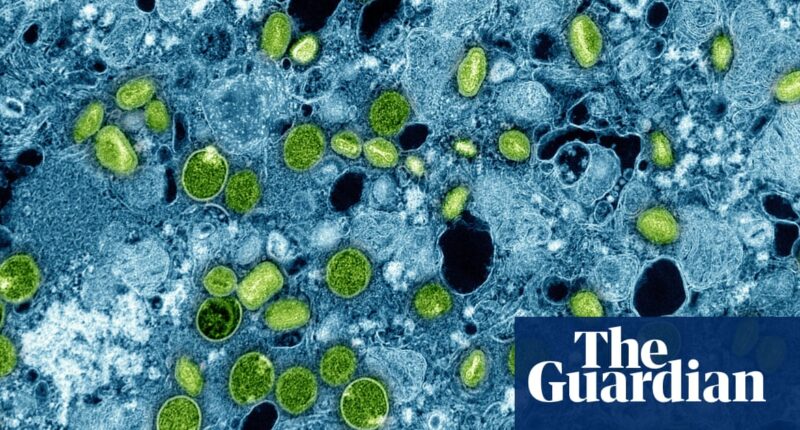Share this @internewscast.com
Health authorities in England have detected a new variant of the mpox virus, identified in an individual who had recently traveled to Asia.
Genomic analysis revealed that this new strain is a “recombinant” form, incorporating elements from two existing variants of the mpox virus: the more serious clade 1 and the less severe clade 2, the latter of which led to the global mpox outbreak in 2022.
The UK Health Security Agency announced on Monday that they are actively evaluating the implications of this strain. Although mpox infections generally remain mild, officials are stressing the importance of vaccination for those eligible to ensure their protection.
Dr. Katy Sinka, head of sexually transmitted infections at UKHSA, commented, “Virus evolution is a normal process, and additional analysis will provide more insight into the changes occurring within mpox.”
Previously known as monkeypox, mpox is a viral infection akin to smallpox. Transmission can occur through close physical contact with blisters or scabs, handling contaminated items like clothing or bedding, or through the respiratory droplets of infected individuals. The virus can also be contracted from infected animals, including rodents like rats, mice, and squirrels.
Symptoms may take up to three weeks to manifest, typically starting with a fever, headache, muscle aches, and fatigue, followed by a rash appearing shortly after the initial symptoms.
The UKHSA said the recombinant strain was “not unexpected” as both clades are circulating, adding that its emergence highlighted the potential for the virus to continue evolving and the importance of ongoing genomic surveillance.
The World Health Organization (WHO) declared a year-long public health emergency during the mpox outbreak in 2022. A second public emergency was declared in 2024 when another mpox epidemic broke out, largely affecting the Democratic Republic of the Congo. That emergency was declared over in September this year.
Figures for 2025, which run to the end of October, show that the WHO recorded nearly 48,000 confirmed mpox cases worldwide, including 201 deaths, in 94 countries.
The UK has a routine mpox vaccination programme in place for eligible groups, including those who have multiple sexual partners, participate in group sex or visit sex-on-premises venues.
Trudie Lang, professor of global health research at the University of Oxford, said: “If further cases of this strain appear in the UK, and anywhere in the world, it will be important to understand the route of transmission, the presentation and severity of disease, so we can assess whether this strain is more or less dangerous than previous ones.”












